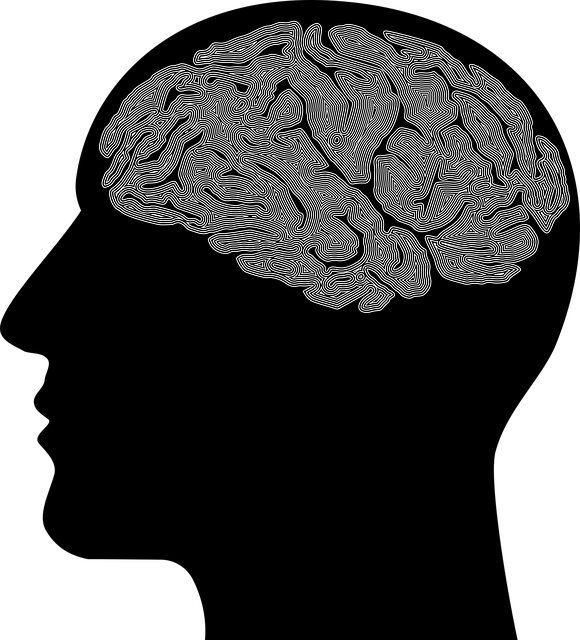Adolescent mental health crises require specialized support, with therapy for adolescent teens crisis counseling addressing unique pressures like academic stress, peer dynamics, and identity struggles that can lead to anxiety, depression, eating disorders, substance abuse, or self-harm. Early identification is key, focusing on data collection through structured assessments and client self-reports to understand symptoms, social networks, family dynamics, and environmental factors holistically. Advanced data analysis techniques, incorporating emotional intelligence and compassion cultivation practices, transform crisis counseling by enabling personalized interventions tailored to individual needs. Interpreted data reveals effective strategies, like empathy and active listening, guiding therapists in customizing approaches for positive outcomes. In the digital age, evidence-based practices enhance teen support systems through risk assessment tools, ensuring personalized, scientifically validated interventions for improved mental health outcomes.
Mental health data analysis plays a pivotal role in understanding and addressing crises among adolescent teens. This article delves into crucial aspects of crisis counseling, exploring common mental health challenges faced by teens. We examine best practices for data collection, highlighting key metrics to measure during therapy sessions. Advanced analytical techniques are then discussed for evaluating treatment outcomes. Through effective interpretation of these insights, professionals can identify patterns and tailor evidence-based support systems to enhance teen well-being. Key focus areas include crisis counseling and improving therapy for adolescent teens.
- Understanding Adolescent Mental Health Crises: Unveiling Common Challenges
- Data Collection in Crisis Counseling: What to Measure and How
- Advanced Techniques for Analyzing Therapy Outcomes
- Interpreting Data: Identifying Patterns and Drawing Insights
- Enhancing Teen Support Systems through Evidence-Based Practice
Understanding Adolescent Mental Health Crises: Unveiling Common Challenges

Adolescent mental health crises are complex issues that require a nuanced understanding to effectively support young individuals navigating their emotional and psychological challenges. Teenagers often face unique stressors such as academic pressures, peer relationships, identity formation, and social media influences, which can contribute to a range of mental health concerns. Common challenges include anxiety disorders, depression, eating disorders, substance abuse, and self-harm behaviors. Early identification of these issues is vital for successful intervention.
Therapy for adolescent teens crisis counseling plays a pivotal role in addressing these challenges. Well-designed Mental Health Education Programs can equip young people with essential skills like self-awareness exercises and conflict resolution techniques, empowering them to manage stress and resolve interpersonal conflicts healthily. By integrating such programs into educational settings, communities can foster a culture of resilience and emotional well-being, ultimately preventing more severe mental health crises.
Data Collection in Crisis Counseling: What to Measure and How

In crisis counseling sessions aimed at therapy for adolescent teens, data collection plays a pivotal role in understanding and addressing mental health concerns effectively. When gathering data, counselors should focus on key areas such as the nature and severity of symptoms, including anxiety, depression, or suicidal ideation. Measuring these indicators provides valuable insights into the teen’s emotional state and guides treatment planning. Additionally, collecting information about the adolescent’s social support network, family dynamics, and environmental factors can offer a holistic view of their mental health landscape.
The process should involve structured assessments, client self-reports, and observational notes to capture both verbal and non-verbal cues. Empathy building strategies and cultural sensitivity in mental healthcare practice are essential during data collection. Counselors must create a safe, non-judgmental space for teens to open up about their struggles while considering the unique cultural backgrounds and beliefs that shape their experiences. This nuanced approach ensures that the collected data is accurate and relevant, facilitating personalized interventions tailored to each adolescent’s specific needs. Furthermore, integrating risk management planning into data collection practices enables professionals to identify potential hazards and implement proactive measures for safe and effective crisis counseling.
Advanced Techniques for Analyzing Therapy Outcomes

In the realm of mental health data analysis, advanced techniques are reshaping how we understand and improve therapy outcomes, especially for adolescent teens in crisis counseling. These innovative approaches go beyond traditional metrics to capture nuanced aspects of healing, such as emotional intelligence and compassion cultivation practices. By integrating these strategies into data analysis, researchers can gain deeper insights into the effectiveness of various therapeutic interventions. For instance, Trauma Support Services that incorporate mindfulness and empathy-building techniques can be evaluated not just through standard measures but also by tracking participants’ emotional regulation skills and self-reported well-being.
This enhanced analysis allows for more personalized and targeted therapy. Professionals can identify which practices resonate most with different demographics or individuals experiencing specific types of trauma. For example, adolescents may benefit from emotional intelligence-focused interventions that teach them to recognize and manage their emotions, fostering a sense of safety and self-efficacy. This level of detail in data interpretation ensures that mental health services are not just meeting but exceeding the needs of those seeking crisis counseling, ultimately contributing to more positive outcomes.
Interpreting Data: Identifying Patterns and Drawing Insights

Interpreting data is a critical step in mental health analysis, where professionals delve into the numbers to uncover meaningful insights. By examining trends and patterns within the data, therapists and counselors can gain valuable knowledge about adolescent mental health crises. This process involves careful consideration of various factors, such as demographic information, therapeutic interventions, and communication strategies used during counseling sessions.
For instance, analyzing crisis counseling data for teen clients could reveal that certain communication methods, like empathy and active listening, are associated with more positive outcomes. This insight could guide therapists in tailoring their approach, using these strategies to foster compassion cultivation practices and effective stress management workshops within organization settings. Such findings emphasize the importance of ongoing data interpretation to enhance therapy for adolescent teens.
Enhancing Teen Support Systems through Evidence-Based Practice

In today’s digital era, enhancing teen support systems through evidence-based practice is more crucial than ever. Therapy for adolescent teens crisis counseling has evolved significantly, incorporating advanced mental health data analysis techniques to better understand and address youth psychological needs. By leveraging robust risk assessment tools for mental health professionals, practitioners can now identify potential crises earlier and tailor interventions accordingly. This proactive approach not only streamlines support but also improves overall outcomes for young individuals navigating stress reduction methods and developing their inner strength.
The integration of data analysis in teen mental health care allows for a more nuanced understanding of what works best for different individuals. Specifically, evidence-based practices focus on implementing scientifically validated techniques that have been shown to be effective in treating common mental health challenges among adolescents. This personalized approach ensures that each teenager receives the most suitable support, fostering their ability to build inner strength and successfully manage stress reduction methods.
Mental health data analysis plays a pivotal role in understanding and improving crisis counseling for adolescent teens. By combining insights from Understanding Adolescent Mental Health Crises, effective data collection methods detailed in Data Collection in Crisis Counseling, and advanced analytics techniques discussed in Advanced Techniques for Analyzing Therapy Outcomes, we can interpret data to identify trends and patterns crucial for enhancing teen support systems through evidence-based practice. This approach ensures that therapy for adolescent teens crisis counseling is informed, targeted, and ultimately more successful, fostering better mental health outcomes.














